- myFICO® Forums
- FICO Scoring and Other Credit Topics
- General Credit Topics
- Is reporting a low util needed in this case?
- Subscribe to RSS Feed
- Mark Topic as New
- Mark Topic as Read
- Float this Topic for Current User
- Bookmark
- Subscribe
- Mute
- Printer Friendly Page
Is reporting a low util needed in this case?
Is your credit card giving you the perks you want?
Browse credit cards from a variety of issuers to see if there's a better card for you.
- Mark as New
- Bookmark
- Subscribe
- Mute
- Subscribe to RSS Feed
- Permalink
- Report Inappropriate Content
Is reporting a low util needed in this case?
Last month, I received a WF Propel (3k SL). I allowed it to report the first month @ 75% util, and then PIF. This month, I'll be looking at the same util (or higher), but will still PIF. I'm not concerned with my FICO scores taking a hit due to my high utilization (currently down 51), since I know this is just a temporary drop. Is a string of high reported balances on my credit report something that I should be concerned about?
I would prefer to just pay the final statement balance by the due date, although micromanaging it is not a problem if there is benefit in doing so (outside of the transient FICO boost).
Thanks.
- Mark as New
- Bookmark
- Subscribe
- Mute
- Subscribe to RSS Feed
- Permalink
- Report Inappropriate Content
Re: Is reporting a low util needed in this case?
Well it definitely isn’t helping your score, but you said you’re not concerned about that. Still, a constant 75% utilization may raise red flags with some lenders.
Amex Cash Magnet: 24.4k
Fidelity Visa: 21.5k
Apple Card: 13k
- Mark as New
- Bookmark
- Subscribe
- Mute
- Subscribe to RSS Feed
- Permalink
- Report Inappropriate Content
Re: Is reporting a low util needed in this case?
@LooksAreDeceiving wrote:Last month, I received a WF Propel (3k SL). I allowed it to report the first month @ 75% util, and then PIF. This month, I'll be looking at the same util (or higher), but will still PIF. I'm not concerned with my FICO scores taking a hit due to my high utilization (currently down 51), since I know this is just a temporary drop. Is a string of high reported balances on my credit report something that I should be concerned about?
I would prefer to just pay the final statement balance by the due date, although micromanaging it is not a problem if there is benefit in doing so (outside of the transient FICO boost).
Thanks.
The fact that there's a string of them doesn't affect your score beyond the immediate scoring effect, but it can possibly trigger adverse action by a creditor.































Total revolving limits 569520 (505320 reporting) FICO 8: EQ 689 TU 691 EX 682
- Mark as New
- Bookmark
- Subscribe
- Mute
- Subscribe to RSS Feed
- Permalink
- Report Inappropriate Content
Re: Is reporting a low util needed in this case?
I don't think it would matter with the lender with which you have that high reported utilization, as they're seeing your large payments every month. Other lenders on the outside looking in though could see it as risky and it could impact their lending decisions.
It may be worth considering doing an extra payment each cycle, say a week or so before your statement prints to perhaps try and halve that reported utilization or so.
- Mark as New
- Bookmark
- Subscribe
- Mute
- Subscribe to RSS Feed
- Permalink
- Report Inappropriate Content
Re: Is reporting a low util needed in this case?
If a person has a completely new card, and he wants to make substantial use of it right away, then it acually is wise to micro-manage it to avoid AA (and I am including tripping fraud or bust-out alerts, which can result in having purchases declined, the card frozen, etc.).
New cards have not had a chance to establish a "use history" which helps the AI modules on the issuer's back end assess whether purchases might indicate fraud or bust-out, or even simply that you might be unintentionally getting over your head.
Helpful risk mitigation strategies:
(1) Early on use the card solely for a few comparatively small purchases at local merchants. Online purchases, out-of-state purchases, many purchases, or expensive purchases in the few weeks following activation are the sort of thing that a bad guy would do if he had intercepted your card.
(2) If you need to do any of the above things, call the issuer. Explain that you have a new card and that you are excited to use it but want to go out of your way to avoid tripping any anti-fraud or anti-abuse alarms. They will hook you up with their fraud department who will be glad to put a note on your account that will reduce the chance of those alarms going off to almost zero (simply for doing the things I mention above -- not for weird merchants in India charging stuff to your account). These "notes" usually cover a short specific time.
(3) Make at least one additional payment early on. This will keep your individual utilization low, which is nice. It eliminates the worry of the CC issuer that you are engaged in bust-out behavior, it confirms that you are seeing the transactions and are willing to pay for them and thus they also can't be fraud, and it keeps other creditors from thinking that you might be getting in over your head (other creditors can see the final statement balance that your issuer reports to the bureau).
Are these things necessary to avoid certain AA? Nope. You might well run up a lot of charges in the first few months without tripping any alarms. Suppose it was very likely (80% probability) that no AA would have been taken (by that issuer or another). By using some or all of those mitigation strategies you could increase the probability of no AA to almost 100%.
- Mark as New
- Bookmark
- Subscribe
- Mute
- Subscribe to RSS Feed
- Permalink
- Report Inappropriate Content
Re: Is reporting a low util needed in this case?
I know people who like to keep UTI down to keep their scores up in case of an impulse app, so they don't have to wait a month to apply.
- Mark as New
- Bookmark
- Subscribe
- Mute
- Subscribe to RSS Feed
- Permalink
- Report Inappropriate Content
Re: Is reporting a low util needed in this case?
@Anonymous wrote:If a person has a completely new card, and he wants to make substantial use of it right away, then it acually is wise to micro-manage it to avoid AA (and I am including tripping fraud or bust-out alerts, which can result in having purchases declined, the card frozen, etc.).
New cards have not had a chance to establish a "use history" which helps the AI modules on the issuer's back end assess whether purchases might indicate fraud or bust-out, or even simply that you might be unintentionally getting over your head.
Helpful risk mitigation strategies:
(1) Early on use the card solely for a few comparatively small purchases at local merchants. Online purchases, out-of-state purchases, many purchases, or expensive purchases in the few weeks following activation are the sort of thing that a bad guy would do if he had intercepted your card.
(2) If you need to do any of the above things, call the issuer. Explain that you have a new card and that you are excited to use it but want to go out of your way to avoid tripping any anti-fraud or anti-abuse alarms. They will hook you up with their fraud department who will be glad to put a note on your account that will reduce the chance of those alarms going off to almost zero (simply for doing the things I mention above -- not for weird merchants in India charging stuff to your account). These "notes" usually cover a short specific time.
(3) Make at least one additional payment early on. This will keep your individual utilization low, which is nice. It eliminates the worry of the CC issuer that you are engaged in bust-out behavior, it confirms that you are seeing the transactions and are willing to pay for them and thus they also can't be fraud, and it keeps other creditors from thinking that you might be getting in over your head (other creditors can see the final statement balance that your issuer reports to the bureau).
Are these things necessary to avoid certain AA? Nope. You might well run up a lot of charges in the first few months without tripping any alarms. Suppose it was very likely (80% probability) that no AA would have been taken (by that issuer or another). By using some or all of those mitigation strategies you could increase the probability of no AA to almost 100%.
I got a new AMEX Cash Magnet specificly because I knew I was going to have two large purchases that I wanted a 0% offer on. I already have a BCE that I run a couple of hundred dollars a month through, and it had enough available credit that I could have put the purchase there except for the 0%. I didn't get enough of a SL to cover the purchases and keep an under 30% Util on the new card so I moved all but $1k from the BCE to the new Cash Manget. When I was ready for the 1st large purchase I was concerned that Amex would think fraud as this purchase would not match my spending and payment history with them. I used online chat and a a fraud rep noted my account. First Statement printed and I made a payment of 6.5X the minimum. I will be making a second large purchase in a couple of days so before I make it I will use the check spending power button in my online Amex account to alert them to the purchase.
Once that purchase is complete then this card will be more or less sock drawered until it is paid off.



Current Scores







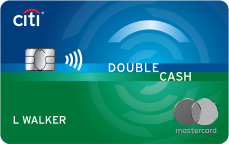

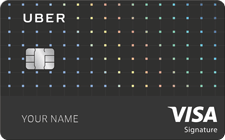
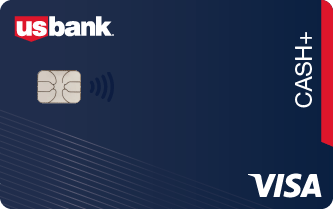

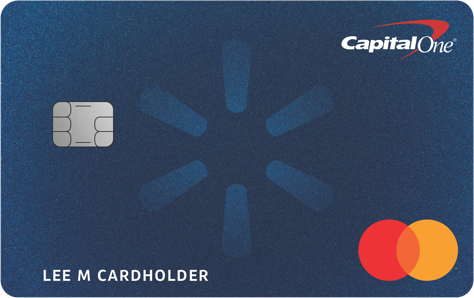
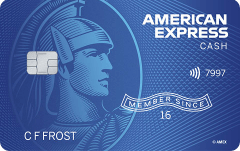
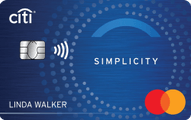


Garden Goal is All Reports Clean – Achieved 11/26/20
